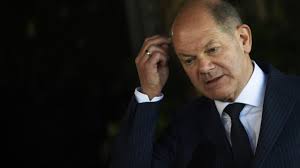
A supermarket in Funen has dividers and floor markings to separate shoppers
COPENHAGEN, April 12 (NNN-AGENCIES) —Denmark is about to make its first move to relax restrictions imposed to fight coronavirus.
From Wednesday, children aged 11 and younger return to schools and nurseries, after a month of closures.
It’s among the first European countries aiming to put the lockdown into gradual reverse, just as it was one of the first to impose restrictions.
“It’s important we don’t keep Denmark closed for longer than we need to,” said Prime Minister Mette Frederiksen, as she announced the move last week.
The spread of coronavirus appears to be under control and the government wants to get the economy going again.
But Denmark’s moves will be slow and cautious. Frederiksen likened them to walking a tightrope.
“If we open Denmark too quickly again, we risk infections rising too sharply and then we’ll have to close down again,” she said.
Some 6,000 cases and 260 coronavirus-related deaths have been recorded up to 11 April.
The lockdown has taken a toll on livelihoods and most restrictions remain at least until 10 May, when the government considers its next steps.
Hundreds of billions of Danish krone – equivalent to tens of billions of pounds or euros – have been spent on rescue packages.
Opening up will clearly take time, and there will be lots of new rules.
“I don’t think the normal life we had before coronavirus will come back,” the prime minister told Danish public broadcaster DR.
Meanwhile, Norway and Austria are also scaling back restrictions slowly.
In Austria some shops reopen this Tuesday, followed by other stores, restaurants and hotels in May.
Children go back to Norway’s kindergartens on April 20 and junior schools a week later.
In Bulgaria farmers’ markets are reopening. In the Czech Republic, shops selling building materials and bikes are back in business and rules have been relaxed for open-air recreation areas.
Spain, which along with Italy has been hardest hit by Covid-19, aims to allow non-essential workers back to work from Monday and will hand out protective masks at stations.
But for many countries the easing of restrictions still lies ahead. UK Foreign Secretary Dominic Raab has said it’s too early to consider an exit strategy. And the head of the World Health Organization has warned against lifting stay-at-home measures too fast. — NNN-AGENCIES





